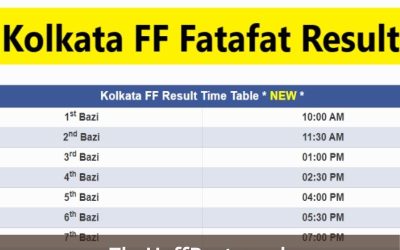PUBG Developer Krafton Sues Garena Free Fire Over Copyright Infringement
As battle royale games become more popular, developers have started to compete for players. PUBG developer Krafton has recently filed a lawsuit against Garena’s Free Fire and Free Fire Max over copyright infringement. The lawsuit also targets YouTube, which hosts videos of the games that Krafton claims blatantly infringe upon its own intellectual property rights. In this article, we will discuss about rajkotupdates.news : pubg developer krafton has filed a lawsuit against garena free fire.
Also Read: thesparkshop.in:product/flower-style-casual-men-shirt-long-sleeve-and-slim-fit-mens-clothes
Copyright infringement
As the progenitor of a popular gaming genre, it’s not surprising that PUBG’s parent company would be concerned about similar games that try to capitalize on their success. This is precisely what happened with Garena Free Fire, which has been accused of copying PUBG in various ways. The lawsuit filed by PUBG is expected to have significant ramifications for the gaming industry, especially in terms of intellectual property law.
PUBG’s parent company Krafton claims that Garena’s Free Fire game infringes on its intellectual property rights by imitating various aspects of PUBG, including gameplay, locations, and in-game items. Moreover, the lawsuit also accuses Google and Apple of refusing to remove the game from their app stores.
Both PUBG and Garena’s Free Fire are battle royale games in which players compete to be the last player or team standing by eliminating other players or avoiding environmental hazards. However, it’s unclear how much of the similarities between the two games are due to copyright infringement. Regardless, it’s clear that PUBG wants to make sure that it gets all the money that it deserves from its rival’s game.
The lawsuit against Garena alleges that the Singapore-based game maker copied numerous elements of PUBG, including the game’s opening, gameplay, combinations and selection of weapons and armor, unique objects, and locations. It also claims that Google’s YouTube video hosting service has hosted countless posts featuring Free Fire gameplay, thereby infringing on PUBG’s intellectual property rights.
In addition to Garena’s Free Fire, the lawsuit names ten of its other games, including Rules of Survival and Knives Out, which have also been accused of copying from PUBG. Despite these allegations, a spokesperson for Garena’s parent company, Sea, told The Verge that the accusations are “groundless.”
The case between PUBG and Free Fire could have significant implications for the gaming industry, particularly in terms of copyright and intellectual property laws. If PUBG is successful in its lawsuit, it could set a precedent for other video game developers to pursue legal action against competitors that use similar gameplay mechanics and visual elements. This could have a negative impact on the gaming industry, as it might discourage new developers from creating original content.
Unfair competition
The recent accusation by PUBG developer Krafton that Garena Free Fire stole its code could have significant ramifications for the gaming industry. If true, the allegations would be a clear case of copyright infringement and Garena Free Fire could face serious legal consequences. The accusations also raise questions about game development ethics and intellectual property laws. The gaming industry is highly competitive, and developers must take care to protect their original content.
The lawsuit accuses Garena of two major games – Free Fire and Free Fire Max – of being blatant copies of Battlegrounds. It is seeking monetary damages of an unspecified amount. The lawsuit claims that the alleged copies have earned hundreds of millions of dollars from Apple and Google’s app stores, which charge a 30 per cent commission on each in-app purchase. The lawsuit further states that the tech giants have refused to comply with Krafton’s requests to remove the games from their app stores, which is considered a violation of copyright laws.
In addition to claiming copyright infringement, Krafton has also filed an unfair competition claim against Garena. This allegation is based on the fact that Garena Free Fire competes with PUBG by offering a similar game experience and features, including a shrinking play area. The lawsuit is expected to have a profound impact on the gaming industry, especially as both games compete for users’ attention in the highly competitive mobile app market.
The lawsuit highlights the importance of protecting intellectual property and fostering innovation in the gaming industry. It also underscores the need to respect intellectual property rights and reward creativity. While some gamers may argue that the gaming industry is inherently competitive and prone to controversies, the truth is that copyright infringement is a real issue for many developers. Moreover, this lawsuit could lead to stricter enforcement of intellectual property laws in the gaming industry, which could make it harder for new companies to launch their games. This could also result in fewer new game releases and less innovative gameplay. The resulting lack of competition and stifled innovation will have a negative impact on the gaming industry as a whole.
Damages
The damage claim for PUBG by krafton against garena free fire is substantial, and could potentially set a precedent for intellectual property law in the gaming industry. The lawsuit states that Garena’s two major games – Free Fire and Free Fire MAX – violate PUBG’s copyrights by using similar gameplay mechanics, user interface design, and visual elements. The company claims that these similarities are intentional and infringe on its intellectual property rights. Garena has denied the allegations, and the case is now in court.
PUBG is a battle royale game that became a global sensation in 2017. It has inspired heavyweight competitors like Fortnite and Apex Legends, and its popularity has led to numerous clones. Despite these competing titles, PUBG has maintained its reputation as the best of its kind. However, its developer, Bluehole, is not pleased with the appearance of a number of these PUBG clones on Apple and Google app stores.
In its complaint, krafton argues that Garena’s Free Fire and Free Fire MAX are direct copies of its game, and uses identical gameplay mechanics, map designs, and characters. It claims that if users mistake Free Fire for PUBG, it will cause confusion and harm its brand image. It also asks for a substantial amount of damages from Garena and its parent company Sea.
In addition to claiming damages, krafton wants to stop the distribution of Garena’s games on the Apple App Store and Google Play Store. The company also wants to force Apple and Google to remove videos on YouTube that include elements that infringe PUBG’s copyrights.
The suit claims that the continued availability of these alleged PUBG clones will have significant effects on the gaming industry, including reduced player numbers and revenue. It will also set a bad precedent for developers, who may become more reluctant to defend their intellectual property rights in the face of accusations from rivals.
Regardless of the outcome of this lawsuit, it is clear that the gaming industry is becoming more reliant on intellectual property laws. As mobile gaming becomes more popular, it is important for developers to respect these rights and create unique games.
Impact on the gaming industry
The lawsuit has sparked an industry-wide debate about the importance of intellectual property rights in gaming. Many gamers are concerned that the lawsuit will lead to more restrictive enforcement of intellectual property laws in the gaming industry, which could stifle creativity and innovation. This case could set a very important precedent for the gaming world, and its outcome will have a lasting impact on the way we create games in the future.
The suit alleged that Garena Free Fire and its sequel, Free Fire Max, copied various aspects of PUBG, including gameplay mechanics, the iconic “winner winner chicken dinner” catchphrase, and the game’s avatars. It also argued that the game’s character designs bore a close resemblance to PUBG characters, which may confuse players and dilute the PUBG brand.
According to the lawsuit, Garena started selling a PUBG-like game in Singapore in 2017 and later released it on Apple’s App Store and Google’s Play Store. The lawsuit alleged that Garena did not enter into any licensing agreement with PUBG and rebranded the game as Free Fire without permission. The suit further alleged that the infringing games have made hundreds of millions of dollars and that Apple and Google are directly profiting from the sales of the two games, as they take a cut of all earnings through their respective app stores.
In addition to requesting that Apple and Google cease distributing the games, Krafton also named YouTube in the suit because it hosts videos of both Free Fire and Free Fire Max. It claimed that these videos include many elements that blatantly infringe upon PUBG’s intellectual property rights, and that they have been viewed hundreds of millions of times. It also asked for YouTube to remove a feature-length film that it claims is an infringing dramatization of PUBG’s gameplay.
The lawsuit is still ongoing and it’s unclear when a verdict will be reached. The lawsuit highlights the intense competition between mobile gaming giants and the importance of protecting intellectual property. However, it’s not clear whether the legal battle between PUBG and Garena will have any impact on the gaming industry in general. To know more about rajkotupdates.news : pubg developer krafton has filed a lawsuit against garena free fire just follow us.











